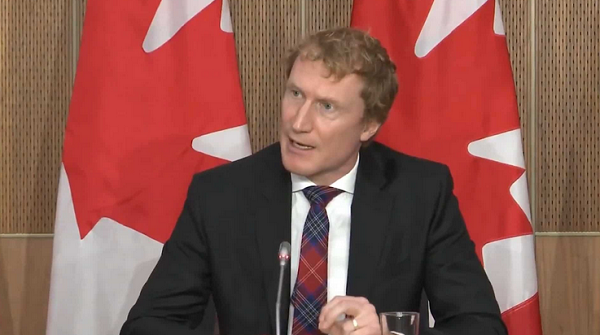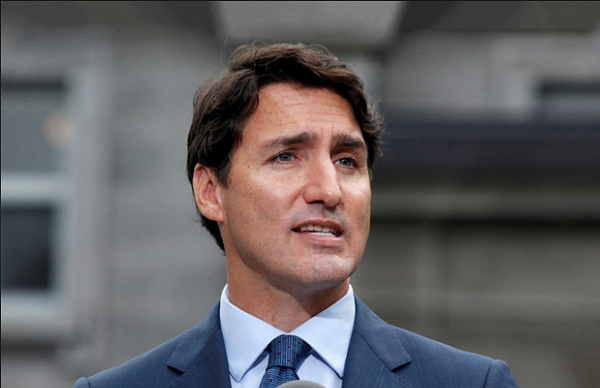Miller ready to combat international student fraud
Immigration Minister Marc Miller is set to unveil on Friday a package of reforms designed to combat fraud in international student admissions and stop bad actors from preying on those students for financial gain, and to fast-track study-permit applications at colleges and universities that meet high standards.
Among the new measures will be a multilayered authentication system for ensuring letters of acceptance from universities and colleges are genuine. A foreign student needs such a letter to apply for a study permit, an immigration document that allows them to enter the country. Fake letters have been used to obtain permits fraudulently.
In December, Immigration, Refugees and Citizenship Canada (IRCC) will begin making colleges and universities verify these letters before the federal government processes study permit applications.
The move follows an investigation this year by an IRCC task force, which was assembled after students from India were found to have fake admission letters. The investigation studied whether the students, who faced deportation, were duped, or whether they were complicit in the immigration fraud.
The investigation found that, of the 103 people whose cases were reviewed, 63 were genuine students and 40 were not, IRCC disclosed to The Globe and Mail on Thursday.
In an interview, Mr. Miller said Ottawa’s intervention to authenticate acceptance letters would be “the first important brushstroke in curbing the fraud.” He said existing safeguards have proved to be insufficient.
A new “recognized institutions” framework, he said, would lead to a “lighter touch” processing of study permits in some cases. Under this framework, universities and colleges with good records of vetting international students and supporting them after they arrive in Canada would have their students’ study permit applications fast-tracked.
Mr. Miller said the framework, to be implemented in time for the 2024 fall semester, would reward “good actors,” and that he expected Canada’s top education institutions to qualify easily.
In order to qualify, colleges and universities would have to meet a series of standards, including showing they can provide housing for international students.
Ottawa would also look at the “rate of adverse outcomes” for students at each institution, such as the proportion who get involved in criminal activity, and the share of graduates who gain permanent residence in Canada, documents seen by The Globe show.
Mr. Miller said he does not want to introduce a cap on the number of international students coming to Canada. But, he said, “if things don’t go well, I think we do reserve the right to do that.”
He suggested caps could be used to target individual provinces, or colleges that appear to be exploiting students. Provinces have responsibility for licensing colleges, and Mr. Miller said he will be monitoring what they do about institutions that are not meeting standards over the next year.
Ontario’s Auditor-General found in 2021, in an audit of public colleges, that a number of them were accepting far higher numbers of international students than domestic students.
Canadore College, in North Bay, had 5,237 international students and 2,772 students from Canada, according to the report. Northern College, also in Ontario, had 4,692 international students, compared with 1,143 domestic students.
Mr. Miller said the government reserves the right to “look at other other capping instruments, depending on what we see in terms of progress throughout the year.”
The government is also doing an assessment of the postgraduation work permit program, which allows international students to stay in Canada to work after they complete their studies.
It plans to reform the scheme to better meet the needs of employers, and to enhance francophone immigration. For example, the government is considering extending the lengths of these permits based on the level of international students’ educational attainment, Mr. Miller said.
Canada is on track to admit a record 900,000 international students this year, roughly triple the number from a decade ago. IRCC forecasts that the number of foreign students applying to come to Canada each year will rise to 1.4 million by 2027, according to an internal policy document seen by The Globe.
Mr. Miller said international students have an “intrinsic value to this country and the future of it.”
But a recent report by senators raised concerns that international students are being exploited by some colleges, which want the fees they pay but are not offering them sufficient supports with housing and other matters.
Foreign students pay higher tuition fees than Canadian students. They inject more than $22-billion into the economy annually – more than Canada’s exports of lumber, according to IRCC.
Earl Blaney, a registered immigration consultant from London, Ont., said exploitation of international students by colleges and education agents is widespread. They are being treated as “cash cows,” he added.
This article was reported by The Globe and Mail
















